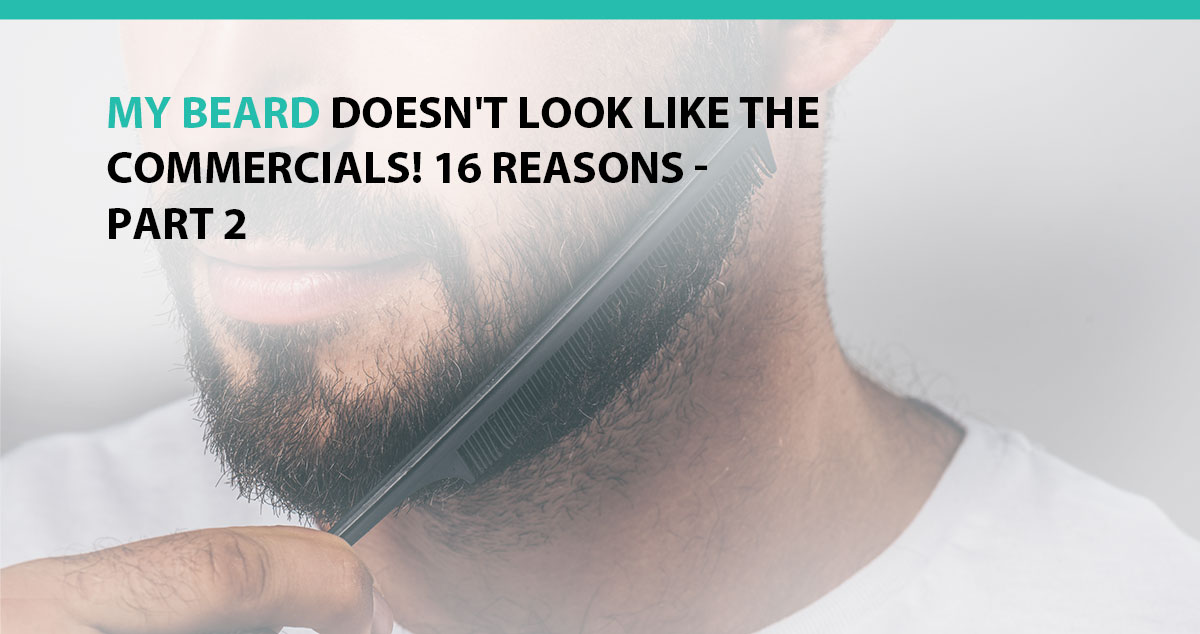
Here are 8 more reasons why some men find it difficult to grow a full beard:
- Dietary Considerations: A wholesome and nutrient-rich diet plays a pivotal role in providing the necessary building blocks for proper development, including beard growth. Micronutrient deficiencies, particularly biotin, vitamin D, and zinc, can impede beard growth. A diet replete with fruits, vegetables, lean proteins, whole grains, and healthy fats is imperative. In cases where nutritional needs cannot be met through diet alone, considering hair growth supplements formulated specifically for addressing deficiencies may be beneficial.
- Impact of Smoking: The detrimental effects of smoking extend beyond overall health, also negatively influencing hair growth, including beard development. Nicotine present in cigarettes constricts blood vessels, impeding the delivery of vital nutrients to the hair follicles. This compromised blood flow can hamper beard growth. Quitting smoking not only improves general well-being but also positively impacts the potential for beard growth.
- Scarring or Trauma: Scarring or trauma to the facial area can disrupt the normal growth of hair follicles, resulting in difficulties in growing a beard. Accidents, surgeries, burns, or skin conditions that cause scarring can hinder hair follicle regeneration, leading to uneven or sparse beard growth. In select cases, medical interventions like hair transplantation or scar revision surgeries may be considered to improve beard appearance.
- Age-related Factors: While it may be disconcerting to not possess a full-fledged beard by the age of 25, beard growth is often an incremental process. It typically commences during puberty when androgen hormones, such as testosterone, surge. Although some teenagers boast surprisingly robust chin hair, the majority observe gradual development and thickening well into adulthood.
- Dispelling Myths: Common misconceptions surrounding beard growth persist, such as the notion that shaving stimulates faster growth. Truth be told, shaving has no direct impact on hair follicle growth. The act of shaving merely trims the hair at the surface of the skin, giving the illusion of a thicker beard due to the blunt ends. It does not affect the rate or density of new hair growth.
- Influence of Skin Conditions: Certain skin conditions can disrupt the normal growth cycle of hair follicles, impeding beard development. Conditions like eczema, psoriasis, or folliculitis (inflammation of hair follicles) can significantly affect beard growth. Proper skincare and, if necessary, medical treatment are essential for addressing underlying skin conditions and promoting optimal beard growth.
- Excessive Grooming or Styling Practices: Over-grooming, the use of harsh products, or styling techniques that subject the hair follicles to excessive stress can impede beard growth. Aggressive brushing, frequent shaving, or the application of strong chemical-based products can damage the hair follicles and hinder healthy growth. Adopting a gentle grooming routine, avoiding excessive manipulation, and utilizing beard-specific products can foster a favorable environment for beard growth.
- Ethnic and Ancestral Influences: Beard growth patterns exhibit variations among different ethnic groups and individuals with diverse ancestry. Genetic predispositions stemming from one’s ethnic background can manifest as lighter or sparser facial hair. Factors like hair follicle density and distribution can differ across populations. Appreciating and understanding the natural diversity in beard growth among various ethnicities is important.
Remember, it’s crucial to approach beard growth with patience and understanding. While some individuals may effortlessly grow full beards, others may face challenges due to a combination of genetic, hormonal, environmental, and lifestyle factors. If you’re concerned about your beard growth or have persistent difficulties with hair growth, contact us at Advanced Medical Hair Institute and we can provide personalized guidance and offer possible solutions.










